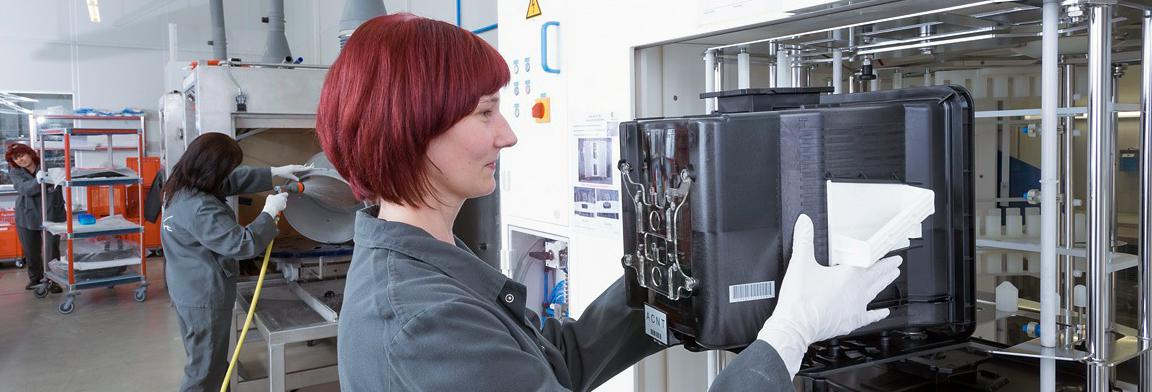Cleaning of Carriers and Trays
Benefits
- Fast turnaround
- Automated cleaning machines that ensure repeatable cleaning results at competitive prices
- Reduced waste and fluid consumption (solvent, surfactant, water)
- No investment in machines at customer site
- Clean and safe carriers and trays thanks to integrated controls and repairs
- Integrated logistics and storage reducing inventory at customer sites
Properties
- Conductivity of DI water
- Mechanical particles monitored by LPC
- Surface and material contamination measurements by analytical means (ICP-MS)
Cleanpart offers efficient cleaning services for carriers and trays thanks to automated cleaning systems that allow repeatable decontamination.
Carriers and trays are often plastic devices that contain and store our customers’ products (semiconductor wafers, automotive parts, mechanical components, etc.) Even though these carriers and trays are not the core products of our customers, they have a high intrinsic value because they are often customized and are important for the success of our customers’ manufacturing processes. These containers need to be periodically decontaminated from various pollutants such as dust, particles, grease, chemical products and from organic material coming from various sources of the manufacturing process.
The machines used at Cleanpart provide a thorough cleaning of these fragile components by different means – most of the time a liquid-based process such as immersion, spray or jet of cleaning liquids (DI water, surfactant, solvents, etc.) combined with spinning, rotating and/or brushing devices that allow the trays or carriers to be fully exposed to the cleaning process.
The drying of the components is also part of the entire cleaning process so the machines are usually equipped with drying technology such as spinning supports, nitrogen or air jets, heating devices (lamps, resistance-based devices) that ensure complete decontamination, including moisture removal.
If necessary , controls are implemented on the trays and carriers or on coupons. Strict contamination measurements can also be conducted periodically according to a sampling plan to determine if metallic or organic particles are within the defined control limits (ICP-MS, LPC).


















